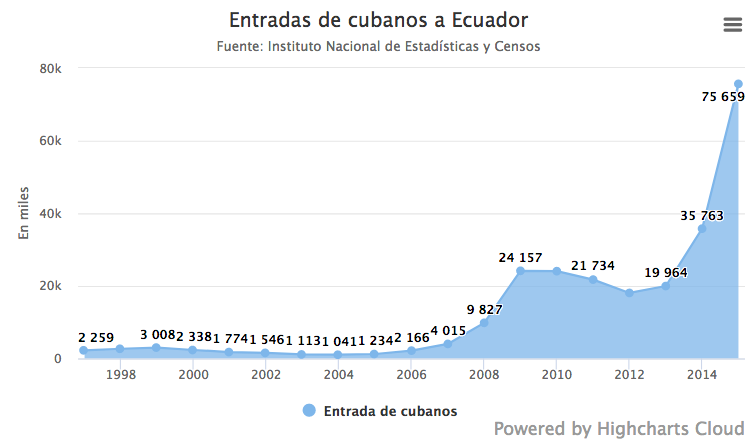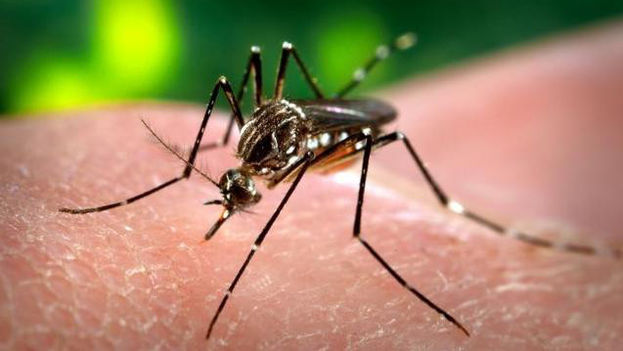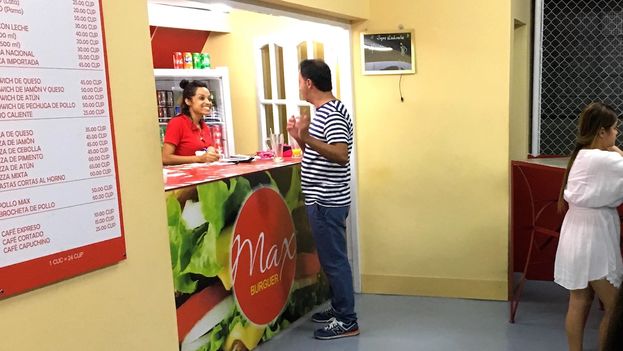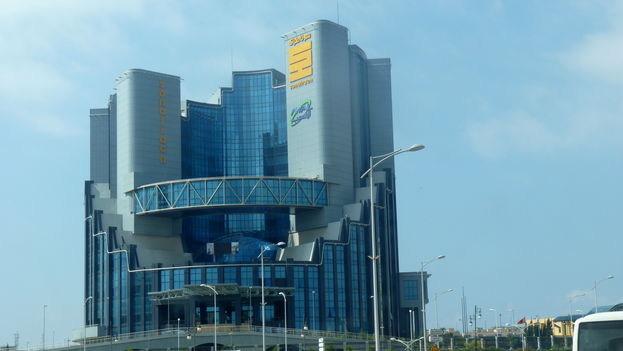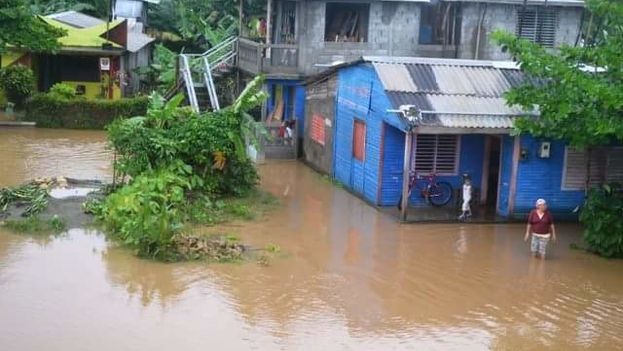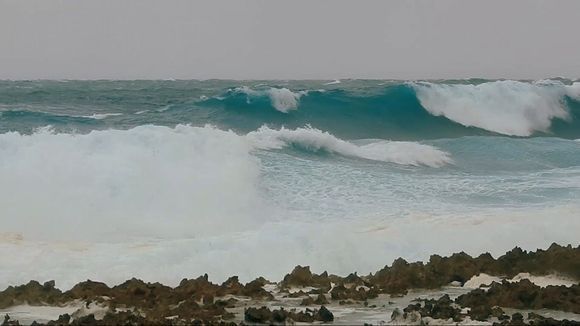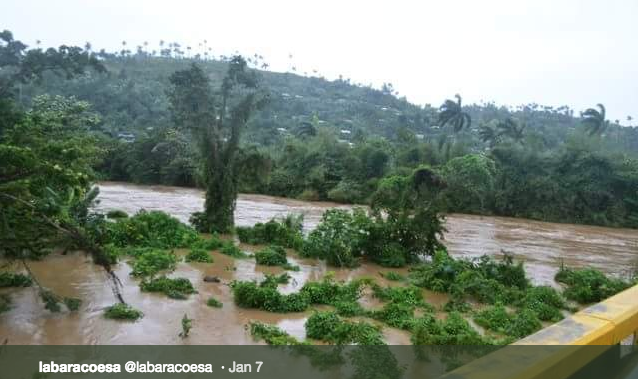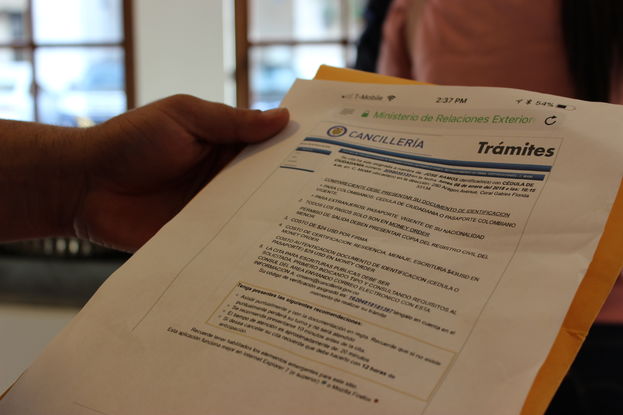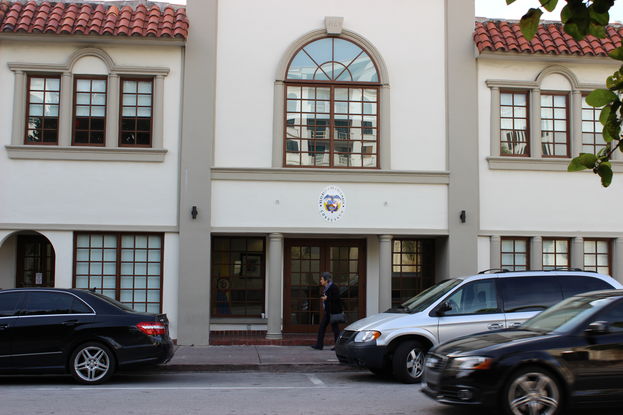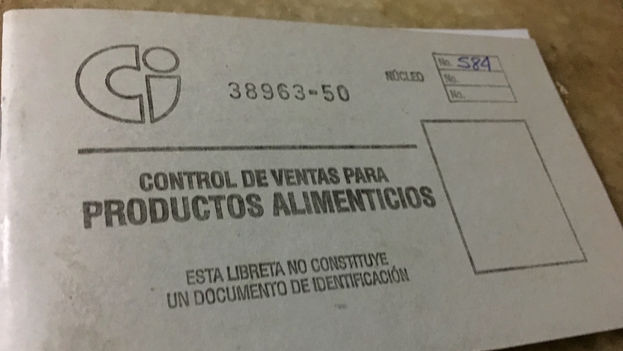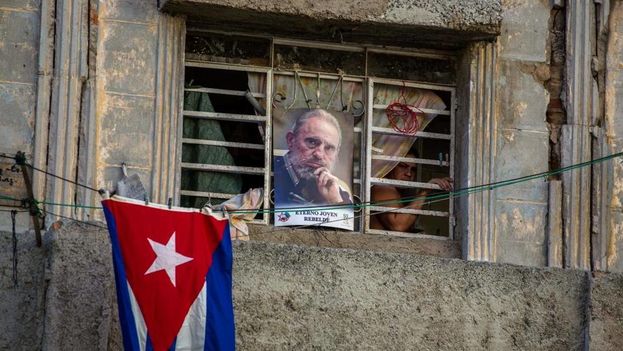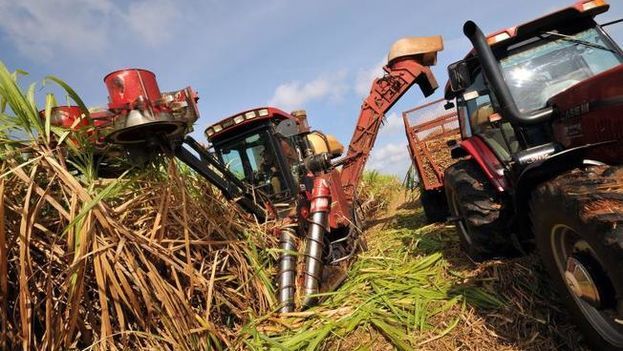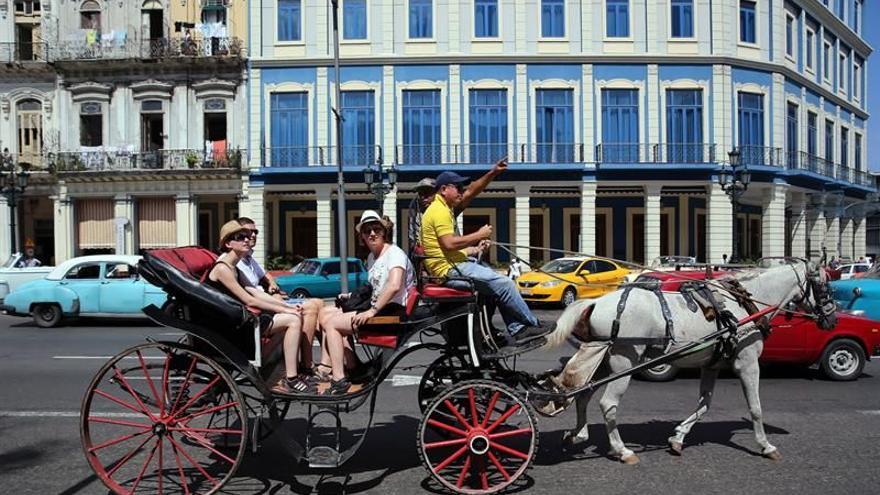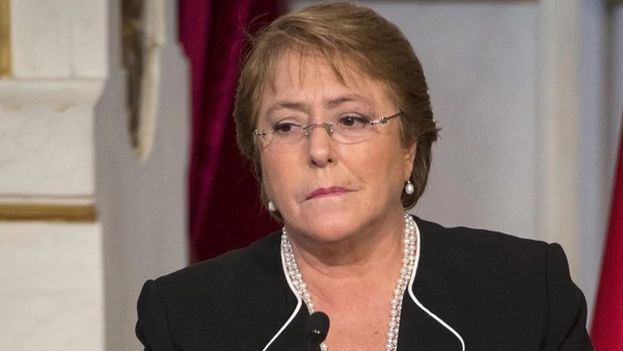Like Facundo, a good part of the Cubans residing on the island today were born under Castroism or barely remember the country before January 1959. Raúl Castro’s departure from the government [first announced for February 2018 and then postponed until April] for them has the connotations of the end of an era, regardless of the rupture or continuity shown by the successors installed in the national command room. continue reading
A few weeks before the presidential transfer becomes effective, indifference gains ground among the inhabitants of a nation that has the longest serving family dynasty in power in all of Latin America. A moment that should be a source of expectation and speculation is diluted by apathy and the island’s complicated economic situation.
Unlike other countries on the continent that have experienced regional or general elections in recent years, the Cuban electoral process does include polling to measure the electorate’s inclinations or to motivate media debates. The sensation is one of “follow the leader” with everyone working together to preserve control in the hands of one group.
The boredom also comes from the fact that the current electoral law prohibits political campaigns, nor are candidates allowed to present their programs, which might excite some or scandalizes others. Without this essential component, the process is one more of confirmation than selection; more of a tacit appointment than of a competition.
Only in April, when the new Council of State becomes public, will it be known who has been chosen for the highest office in the country. So far, the outcome is only a matter of speculation, that moves according to official attention focused on one person or another, as functionaries move in and out of the spotlight. Thus, political divination is a very inaccurate art in these parts.
On top of that, the candidates to sit in the presidential chair will enjoy their status as aspirants for an extremely short time, perhaps hours or minutes between the time the National Candidacy Commission reveals their names to the new Parliament that body’s vote to approve a candidate. The trajectory to the presidency could be no longer than a sigh.
This has been the case since the first National Assembly of People’s Power was constituted in 1976, when Fidel Castro proclaimed that the “provisional period of the Revolutionary Government” ceased and the socialist State adopted “definitive institutional forms.” In 1992, the new electoral law modified some details, but maintained the single-party essence of the system along with its armor against any kinds of surprises.
The end of a family dynasty
However, the novelty of the current elections does not lie in what may happen outside the script, but in the fact that for the first time the person occupying the presidential chair is very likely not to have the surname Castro. The possibilities that the office holder will belong to “the historical generation of the Revolution,” formed by a small group of octogenarians, are also minimal.
Along with the new president, figures that will replace the hard core of gerontocracy will come to sit on the Council of State. A cabal where the excess of years has been justified by the argument of accumulated experience, when in reality the permanence of these veterans is based on their proven loyalty to Fidel Castro, and now to his brother Raúl.
Biology, in its pragmatic task, seems to have imposed new rules and the time has come for the relief team, but there are no signs that the renewal of faces implies a political transition. In fact, anyone who has been projected as a reformer will not appear in the fleeting list of candidates that, in a predictably unanimous manner, will be approved by Parliament in April.
As was noted before focusing the cameras of the last century “anyone who moves does not appear in the photo”; anyone who has shown traits of thinking with his own head or wanting to mark his mandate with a new imprint will be out of the picture. This is what happened in 2009 with then Vice President Carlos Lage and Minister of Foreign Affairs, Felipe Pérez Roque, who had been seen as possible heirs but instead were unceremoniously ousted.
If this is the case, it is worth repeating Galileo Galilei’s mythical “and yet it moves.” After six decades of the country being governed by a regime that is not only totalitarian but also family based, those who assume leadership roles will have to do it in a collegiate way, in the absence of a figure that combines historical ancestry, command capacity and the consensus of the leadership to rule without supervision.
During the almost 50 years that Fidel Castro held power on the island, he did it based on his own will and caprice. At that time councils of ministers hardly existed and the country was governed from the door of a Soviet jeep from which the maximum leader appeared to impart his “clear guidelines.” His omnipotent power led him to decide everything from the fabric and cut of school uniforms to the way housewives cooked beans.
When he participated in the sessions of the Parliament, the only one who spoke was him and he did it relentlessly for hours, wasting in the practice the participation of the more than 600 deputies. He hoarded all the portfolios, imposed his desire in each sector and emptied the institutions of any possibility of decision making. Fidel Castro led the country with the tip of his index finger, without anyone else influencing the national course.
There are many testimonies that narrate the occasions in which he met with his immediate subordinates, where the curses and the threats would rain down if his designs were not fulfilled. His pounding the table buried every possible disagreement and assent or applause were the only possible answers. “Yes, Fidel.” “Of course, Chief.” “At your orders, Commander.”
When Fidel Castro fell ill and was forced to withdraw from public life, in July 2006, Raúl introduced the habit of consultation. During the 10 years that he has governed he held more meetings of the councils of ministers and summoned a greater number of plenary sessions of the Central Committee of the Communist Party of Cuba (PCC) than all of those held for the previous nearly half a century.
That proclivity to teamwork does not make the younger Castro a democrat, but at least he gave the impression that, although he did not renounce imposing his will, he was in the position to or in need of sharing decisions. His calls to make “incremental” and “gradual” changes to improve the country’s economy earned him a reputation contrary to that of his brother. The former was like an unreflecting hurricane, the latter a lackluster drizzle that was neither wet nor cool.
However, it fell to the younger Castro to lead the diplomatic thaw with the United States. The milestone of his mandate and the one for which he will go down in history was not — ironically — the long-awaited democratic transition on the island, but rather to have settled the problem with the great neighbor of the North. A conquest that dissolved in the last months with the arrival of Donald Trump to the White House and the outbreak of the scandal of the acoustic attacks supposedly suffered by US diplomats in Havana.
To make matters worse, the great Venezuelan ally has also clouded the final days of the Cuban president. The plummeting of oil imports to the island, along with the growing loss of prestige of the so-called “Bolivarian revolution” and the departure of several political allies in the region have made the scenario of the “farewell” very different from the one that was planned.
In the midst of this adverse context, the entire weight of Cuba’s future lies in the decision that will be taken when the moment comes to transfer power. Although the ruling party tries to show that it has everything “well under control,” a system so based on the will of a family clan has serious problems with new faces. A dynastic regime is not inherited by or delegated to others, it only survives if it remains anchored to a family tree.
Hence, speculation about the possible rise of Alejandro Castro Espín, son of the current president and a dark figure responsible for the police control of the country and the management of the feared State Security. Despite this possibility, his father is trapped in wanting to present an image of institutionality before genetics. He knows that a relief based on blood would protect him, but that also it would end up burying any narrative of the revolution in favor of emphasizing the character of a family dynasty.
Beyond the individual who will assume the highest office in the country, the person will be obliged to agree with others and to govern under the inquisitive gaze of third parties. He will have no choice but to argue to reach consensus, in a scenario where no one will have the right to pound the table with his fists or to throw a threatening look when asking if anyone disagrees with his opinion.
A future for Miguel Díaz-Canel?
The great unknown remains the name of the man – or woman – who will be graced with the position, although all bets point to Miguel Diaz-Canel, currently Cuba’s first vice-president. Born in 1960, the possible heir is a faithful product of the laboratory of political cadres, someone suckled on the udder of the Cuban Communist Party (PCC) and attached to the official script, with not a single mis-delivered line.
The Cuban dauphin can be considered a gray man, without charisma or a will of his own, someone who projects the image of continuity. He has come to where he is thanks to that projection and is unlikely to expose himself as a Mikhail Gorbachev or as a Lenin Moreno, once he reaches the presidential chair. Instead, his rise is surrounded by questions and suspicions that rain down on him from the opposition.
A sector of the outlawed dissidence maintains that “until what has to change has changed, nothing has changed” and that the transfer of power will be a theatrical representation to show the world, although nothing will move even a millimeter with regards political repression and the lack of freedoms.
This point of view is based on the fact that Raúl Castro will continue to be the first secretary of the PCC, which, according to the Constitution, “is the leading force of society and of the State.” Although biology suggests that it is unlikely that he will remain in that position until the eighth congress is held, in 2021, when he would be about to turn 90.
So, in order to continue the tradition of the socialist countries of concentrating in one person the highest governmental and partisan positions, it is more than foreseeable that before the end of his term at the head of the political organization he would convoke an extraordinary congress to unify the controls.
It may also happen that, for the first time in decades, the person appointed to head the PCC could be different from the person who holds the presidency. A bifurcation that weakens the system and will generate more than one collision of authority.
Between the slight optimism of a few, the distrust of the opposition and the indifference of most of the population, we just have to wait and see what is decided in April. Whether the date becomes a watershed or a new chapter of “more of the same.”
What is not discussed is how difficult it will be for the relief team to complete the pending tasks left by the current government. Perhaps the greatest difficulty is that of undertaking the essential reforms in the economy, while fulfilling the promises of continuity that, as a mandatory reverence, they will have to make when assuming their positions.
More complex will be to introduce political changes. Maybe they should wait for probable new elections in which, if everything works out, they will have to compete with the platforms of other candidates, of those possible presidents who remain hidden in the Cuban reality, waiting for a future legal framework that will allow them to emerge, waving their own government programs.
_________________________________
The 14ymedio team is committed to serious journalism that reflects the reality of deep Cuba. Thank you for joining us on this long road. We invite you to continue supporting us, but this time by becoming a member of 14ymedio. Together we can continue to transform journalism in Cuba.
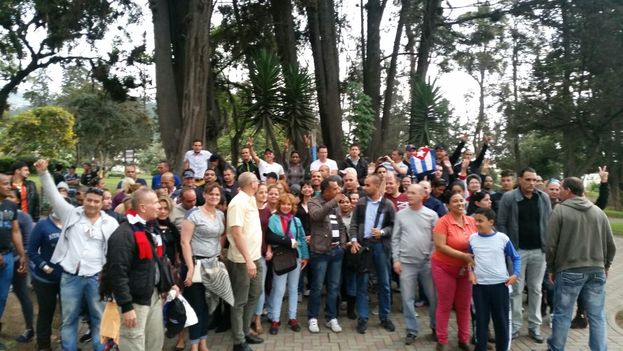
![]() 14ymedio, Mario Penton, Miami, 12 January 2018 — The division between correístas (supporters of former president Rafael Correa) and morenistas (supporters of current president Lenin Moreno) that runs through Ecuador, less than a month before the upcoming 7-issue referendum called by President Lenin Moreno is also reflected among Cubans residing in the country.
14ymedio, Mario Penton, Miami, 12 January 2018 — The division between correístas (supporters of former president Rafael Correa) and morenistas (supporters of current president Lenin Moreno) that runs through Ecuador, less than a month before the upcoming 7-issue referendum called by President Lenin Moreno is also reflected among Cubans residing in the country.